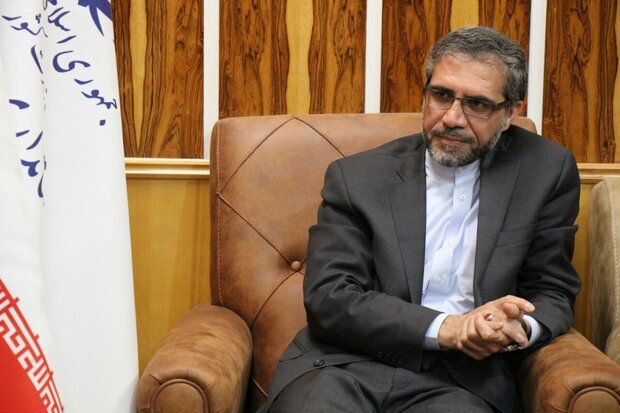Raisi administration’s foreign policy approach ‘smart’: MP

TEHRAN – A senior Iranian lawmaker has praised the foreign policy approach of the Raisi administration, describing it as proactive and smart.
The lawmaker, Abbas Golrou, the chairman of the Iranian parliament’s foreign relations committee, said the proactive approach of the Raisi administration led to the unfreezing of Iranian funds blocked abroad.
“The approach of the 13th government in the field of foreign policy was based on diplomacy and active and smart interaction to secure the interests of the Iranian nation, and this approach led to the release of a part of the blocked currency resources of the Islamic Republic of Iran recently,” Golrou said in remarks to Mehr News.
He pointed out that one of the good works of the Raisi government in the field of foreign policy is the continuation of negotiations to secure national interests.
Golrou added, “Although the process of nuclear negotiations was stopped at some points, we saw that the government continued its actions and efforts to realize Iran's rights.”
“The Ministry of Foreign Affairs made a lot of efforts and promised to release the blocked assets of Iran, and with the continuation of negotiations, a part of the financial resources from Iran's oil sales and foreign trade, which was blocked in other countries, returned to the country. Of course, we hope that all the blocked financial resources of the Islamic Republic of Iran will return to our country's accounts and that our interests will be properly secured,” the lawmaker said.
He continued, “The Raisi government has put proactive diplomacy and smart interaction on its agenda and performed intelligently in the nuclear negotiations and showed that it does not want negotiations just for the sake of negotiations and did not allow the country's diplomatic capacity to be spent on nuclear negotiations.”
The government has chosen the right path in the field of foreign policy, he noted. “The emphasis of the 13th government from the very beginning was that we should act intelligently and reciprocally in the nuclear negotiations, in the sense that we should not make concessions beyond our commitments,” he said.
Iran and the U.S. have been involved in nuclear talks over reviving the 2015 Iran nuclear deal, officially known as the Joint Comprehensive Plan of Action (JCPOA), since April 2021.
The Iran nuclear deal is a landmark agreement reached in 2015 between Iran and the P5+1 group of world powers (United States, United Kingdom, France, Germany, Russia, and China), along with the European Union. The aim of the JCPOA was to lift sanctions on Iran in exchange for curbs on the country’s nuclear program.
However, the JCPOA has faced challenges and controversies. In 2018, the United States unilaterally withdrew from the agreement and reimposed sanctions on Iran, a move that strained the deal. Facing U.S. sanctions and the inaction of the remaining parties to the deal, Iran started to reduce its commitments under the deal.
Negotiations and discussions on the future of the JCPOA have been ongoing since April 2021, with attempts to revive and strengthen the agreement. But they failed to produce concrete results.
Leave a Comment